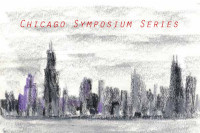Merced College
With Patricia L. Perez
As educators in science and math, we all view most of our course content topics as universal in nature, crossing geographic, chronological, cultural, political and discipline boundaries. But do students view their courses with that same perspective? Is Islamic chemistry different from Mexican chemistry different from Chicago chemistry? Is algebra different in Japan and Italy and California? Is chemistry connected to biological, physical, and medical topics? Using examples from Project Inclusion, we will provide a framework for bringing universality to a variety of course topics without drastically changing the topic list of your course(s). One example will take the study of the same iron redox reactions to the basket making of some California Native Americans, pottery production in Japan and the creation of iron in the peat bogs of Ireland. Another example will review our understanding of the element as the basic foundation of the universe. The fundamental purpose of Project Inclusion is the desire to make courses relevant to students, no matter what their interests or majors. Science and math should be theirs, meaningful to their experiences and appropriate to their backgrounds and cultures.
Janan M. Hayes has been a Professor of Chemistry and Physical Science at California community colleges since 1971, first at American River College and now at Merced College, Merced, CA. In that time span, she spent 12 years as Dean of Science at Coaumnes River College and Vice-President of Instruction at Merced College. Hayes is Co-Principal Investigator of Project Inclusion and has served as project director of various efforts to improve the education and training of science-math teachers and correctional officers (prison guards) in the California Department of Corrections. She is a member of the Council of the American Chemical Society (with numerous national governance committee assignments), the Two-Year College Chemistry Committee and the California Association of Chemistry Teachers. Hayes has made a number of presentations at local, regional and national meetings of these organizations and organized and presided over several symposia. She has served on various NSF review panels. Hayes earned a Ph.D. in Chemistry from Brigham Young University in 1971.

